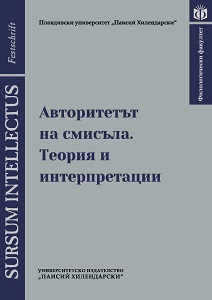Литературата като фабрика, литературознанието като фабрика
Literature as a Factory, Literary Studies as a Factory
Author(s): Rumyana Zlatanova
Subject(s): Language and Literature Studies, Studies of Literature, Philology, Theory of Literature
Published by: Пловдивски университет »Паисий Хилендарски«
Keywords: Russian formalism; communist propaganda; “production art”; analogy; literature; literary studies; factory; Viktor Shklovsky; Osip Brik
Summary/Abstract: The emergence of Russian formalism as a literary-theoretical school in the 1910s coincides with the systematic and violent implementation of communist state order in Soviet Russia. Although the first years after the October Revolution were mainly characterized by physical terror and atrocities, soon after the assumption of power the communist regime introduces as an additional implementation tool a severe ideological censorship forcing all agents in the cultural field – individuals, groups and institutions – to act as promoters of communist propaganda. One of the distinguished trends in the propaganda especially in the period 1918-1923 was the development of the concept of the so-called “production art”. Particularly in this environment and as part of their own participation in the debate, the leading members of Russian formalism Viktor Shklovsky and Osip Brik launched a theoretical analogy between literature and factory, on the one hand, and between literary studies and factory, on the other. The paper describes and discusses the gradual structuring of this two-fold analogy in some works of the two literary scholars in the period 1917-1929. It focuses especially on two aspects. Namely: how the analogy was integrated into the overall literary theory of Russian formalism, and how the two literary scholars used the analogy in order to outwit the communist doctrine.
Book: Авторитетът на смисъла. Теория и интерпретации. Сборник в чест на доц. д-р Атанас Бучков
- Page Range: 105-123
- Page Count: 19
- Publication Year: 2019
- Language: Bulgarian
- Content File-PDF

